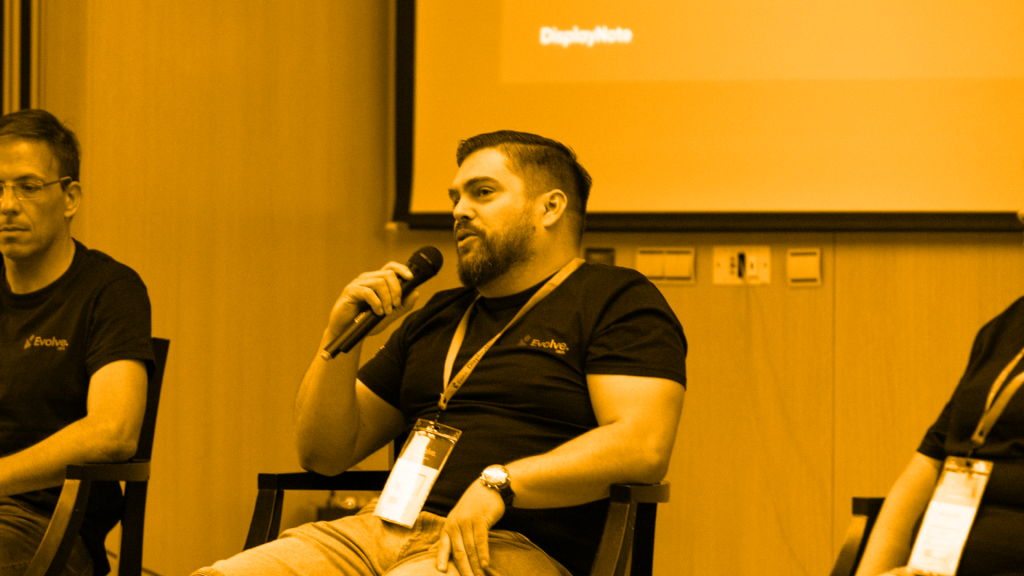
Collaboration isn’t new – we’ve been collaborating since we were born.
You don’t have to look far nowadays to read about the term “collaboration”. It’s a common topic, and for good reason. Since the rise of the millennials, collaboration is top of many business agendas.
People see the value in facilitating collaboration in the workplace. Increased creativity, continuous idea-sharing, projects being progressed quickly, better decisions being made – there’s not many reasons against it.
However, some organisations find it difficult to develop this culture of collaborative workers. Which is confusing as hell, because ever since we were born, we have been taught to be collaborative. Think about it…

0-3 Years
These are the years most of us (if not all of us) don’t remember. During this time, a health visitor visits parents and monitors how their child is progressing. They may try and engage in conversation with the child, to see if they know any words, and play with the child, things like jigsaws, puzzles etc to see how they react. Play allows children to use their creativity while developing their imagination, dexterity, and physical, cognitive, and emotional strength. It’s important to healthy brain development.
And of course, children at the age of 0-3 can’t play alone. It’s up to the family to dedicate play time, and interact and engage with their child. Even though we don’t remember it, it’s from our parents that we gain knowledge, and learn how to play. How to interact with other people, and how to engage with them.
4-16 Years
This is the typical age range where children attend school, both nursery/pre-school and high/junior school. One of the most important lessons we learn during these ages, is sharing with others. Imagine this scenario. You have twin sons. One is screaming at the top of his lungs while the other is yelling with anger. Both have their hands on a toy truck, pulling at each side. You’re going to break it up and tell them…? That they “have to share”. Sharing is a vital life skill. It’s something toddlers and children need to learn to make and keep friends, and play cooperatively.
But it’s also something that should be carried on into adulthood, and the world of work. We’re not talking about sharing a stapler, or a ride into the office (although these would be nice too). No, we are talking about sharing knowledge. This is a crucial part of collaboration. When employees and teams share ideas with each other, the feeling that they pursue a common goal becomes authentic. The feeling of being part of a functional and collaborative team boosts enthusiasm and empowers everyone to exchange knowledge, breaking down the silo mentality that affects both employees morale and ultimately reducing your business efficiency.
18-21 Years
This is an awkward age range, probably for most of us. These were the years when you start to discover what it’s like to be an adult, yet you still feel like a child. You’re probably out working part-time, to earn money, yet you’re living off beans and toast because you haven’t yet learned how to cook. And if you did go to University/college this is the time where group projects took over your life! I personally loved group projects. I liked hearing other people’s opinions, which sparked new ideas, and being able to produce a great piece of work, because each different person brought their own unique skill to the table.
But the reasons universities invest so much time into group work is to prepare students for the real world of work. If properly structured, group projects can reinforce skills relevant to individual work, including the ability to:
• Break complex tasks into smaller steps • Challenge assumptions • Give and receive feedback on performance • Plan and manage time effectively • Develop stronger communication skills • Understand context through discussion
Group projects also help with collaboration, allowing students to:
• Develop new approaches to resolving differences • Gain encouragement and support to take risks • Tackle more complex problems than they could on their own • Hold one another, and be held accountable • Share knowledge and skills
All these skills above are crucial in business. Most of them are incorporated someway into interview questions when hiring new employees.
22-65 Years
The big, bad world of work! This is where everything we’ve learned for the past couple of decades comes together and brings results. Learning how to engage with others, the importance of sharing knowledge, working together in a team – all vital in business, no matter what sector you work in. Collaboration can truly transform a business. Teamwork divides the task and multiplies the success. We’ve previously highlighted our top 5 steps to improving your team’s collaboration, which you can read here.
So collaboration isn’t just a new thing in business. It’s been driven into us since birth. And it shouldn’t be that difficult to achieve. You just need to ensure your company have the right tools to enable effective collaboration. Before researching these tools, make sure to check out our useful infographic “5 Must Have Features of a Wireless Presentation & Collaboration System”.
Final Thoughts.
Remember ‘TEAM‘ – ‘Together Everyone Achieves More’.
(And what about ages 65+? Well – we think after 65 years of collaborating, we’ll deserve a well-earned quiet retirement ?)
Want to stay in the loop?
Keep up-to-date with everything DisplayNote – including new releases, job openings, and customer giveaways.
Don’t worry, we’ll not spam you and we’ll never share your email with anyone






